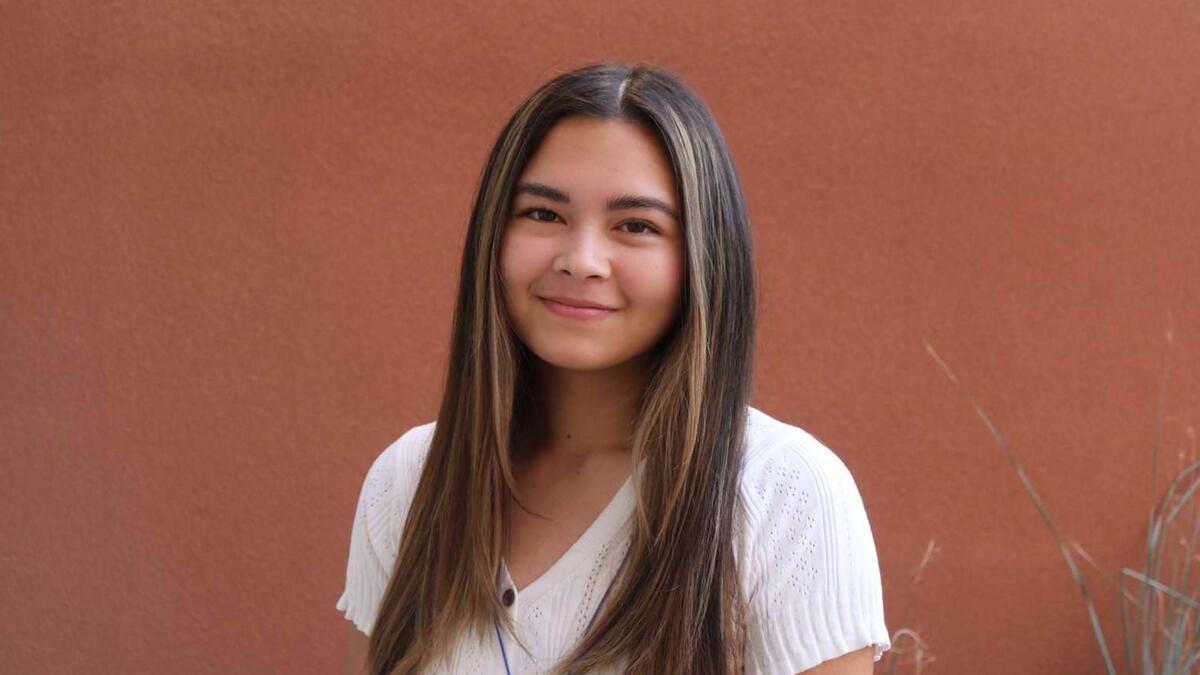ASU student attends Pacific Sociological Association conference

Lynette Hrabik
Lynette Hrabik, a senior at Arizona State University studying political science and sociology, believes that students looking to enrich their college experience should pursue undergraduate research opportunities.
So far during her time with The College of Liberal Arts and Sciences, she’s done just that.
With the assistance of a travel grant offered by the School of Politics and Global Studies, Hrabik traveled to Sacramento, California, to attend the Pacific Sociological Association’s annual conference.
The conference focused on collective memory. Hrabik attended sessions on mental health, the carceral system, globalization and education.
“As a research assistant for the Arizona Youth Identity Project (AZYIP), I also presented some of our preliminary survey and interview findings,” Hrabik said. “My presentation covered Native American young adults’ civic engagement in Arizona during the 2020 elections and COVID-19 pandemic.”
Attending the Pacific Sociological Association’s conference not only provided Hrabik the opportunity to share and receive feedback on her research, but also learn from others.
“Also, as a political science and sociology student, I loved seeing how experts from across the country are applying the concepts I’m learning in their research,” she said.
Hrabik shared some of her experiences from this conference with ASU News:
Question: What were some of your takeaways from this experience?
Answer: There were so many inspiring presentations. One of my takeaways is the value of research in understanding social issues and facilitating change. I was quite moved by one talk on mental health in Filipino communities since I'm Filipina, and this topic is personal for me. While many Filipinos struggle with mental health, seeking help is stigmatized. Mental health service utilization is low — for a variety of reasons. This is a problem since many don’t receive support until it's too late. The presenters discussed how they were interviewing both older and younger generations to heal intergenerational traumas and work towards increasing mental health service utilization. Personally, I think this is a powerful example of how valuable research can be.
Q: How do you think this trip will help you attain your career aspirations?
A: I’m interested in public interest law, becoming a policy analyst or working in public service in some capacity, so the knowledge I gained through this opportunity is indispensable. I also came back more confident in my research abilities and with greater resolve. Whatever path I take, I believe the experience will make me a better researcher and advocate.
Q: What advice would you give those who are interested in a similar experience?
A: When Dr. Angela Gonzales and Dr. Michelle Pasco originally suggested that I could present at a conference, I was hesitant. However, despite being an undergrad, I was surprised by how supportive other conference attendees were. My advice is to not sell yourself short! Pursue research opportunities, even if they seem intimidating, because you’ll learn and grow substantially.
More Law, journalism and politics
Can elections results be counted quickly yet reliably?
Election results that are released as quickly as the public demands but are reliable enough to earn wide acceptance may not…
Spring break trip to Hawaiʻi provides insight into Indigenous law
A group of Arizona State University law students spent a week in Hawaiʻi for spring break. And while they did take in some of the…

LA journalists and officials gather to connect and salute fire coverage
Recognition of Los Angeles-area media coverage of the region’s January wildfires was the primary message as hundreds gathered at…

